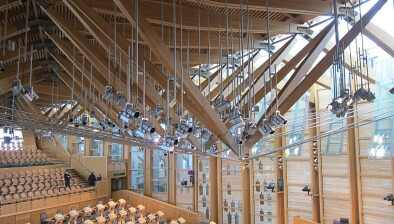Consultation closes on Housing Bill as landlords and tenants clash over rent control exemptions

The Scottish Government’s consultation on the Housing (Scotland) Bill will close today, bringing to an end a heated debate over proposed rent control measures and potential exemptions that have sharply divided landlords and tenants’ groups.
At the heart of the dispute is a provision in the Bill that would allow ministers to designate Rent Control Areas where rent increases are capped at Consumer Price Index (CPI) +1%, up to a maximum of 6%. The government sought public views on whether certain types of properties, such as mid-market rent and build-to-rent (BtR) homes, should be exempt from these controls, and whether landlords should be allowed to raise rents above the cap in specific circumstances.
The issue has become a flashpoint in Scotland’s ongoing housing crisis, declared a national emergency in 2024 following a surge in homelessness, rent inflation, and social housing shortages.
Landlords call for ‘common-sense exemptions’
Scottish Land & Estates (SLE), which represents rural landlords and housing providers, has urged the government to implement targeted exemptions, arguing they are essential to protect and grow the supply of rented homes in rural areas.
“Ensuring a healthy supply of good quality, rented housing in rural Scotland is vital in sustaining both rural communities and economies,” said Anna Gardiner, policy adviser at SLE. “Whilst we believe rent control areas are a fundamentally flawed concept, we are pleased that government has sought views on where common-sense exemptions should be applied to avoid certain categories of property being unfairly caught up in the system.
“The Landlord Register shows that the number of properties registered for letting has declined in rural regions since the advent of rent controls - and introducing a blanket rent cap would only exacerbate that situation. Data collection around the rural rented sector lags behind the rest of the country, and without the relevant data local authorities could end up imposing regulations without a clear understanding of their implications.
“If rent controls are to be pursued, then we need exemptions to be put in place in order to encourage landlords to keep investing for the long-term and sustaining existing housing stocks. This includes removing properties from controls where they are let at mid-market rents, properties that are tied such as those let to employees or housing where the landlord undertakes significant improvements, such as improving energy efficiency which is in line with the pursuit of net zero by government.
“Finally, the process for ending a joint tenancy, as set out in the Bill, must be clear and consistent to ensure fairness for all parties. While the notice requirements themselves should remain strict to uphold legal certainty, the methods by which service of those notices is evidenced should allow for flexibility. This is particularly important in rural, island, and remote communities, where limited access to postal services, digital connectivity, or legal support can make rigid evidencing requirements difficult to meet. A more adaptable approach would help ensure the process remains accessible and workable for tenants regardless of their location or circumstances.”
SLE’s response highlights concerns that the existing and proposed rent restrictions are already discouraging investment, with a decline in registered rural rental properties since the introduction of emergency rent caps in recent years. They argue that landlords need flexibility, particularly when transitioning housing out of employee use or when making energy-efficiency upgrades aligned with Scotland’s net-zero goals.
The group also stressed the need for a practical and adaptable system for ending joint tenancies, especially in rural or remote areas where digital access and postal services can be limited.
Exemptions would ‘undermine’ rent controls
On the other side of the debate, tenants’ union Living Rent has accused the government of capitulating to landlord lobbying and warned that introducing any exemptions would “create a two-tier system” and fatally weaken rent controls before they are even implemented.
“If the government legislates in favour of rent control exemptions, it will be a disaster for Scottish tenants,” said Ruth Gilbert, National Campaigns Chair of Living Rent. “All tenants in rent control areas need the same rights and protections. Any exemptions will create a system that is difficult to understand, creating unequal rights and exacerbating already out-of-control rents.”
Living Rent argues that exemptions for Mid-Market or BtR developments, often targeted at lower-income tenants, would leave many of the most financially vulnerable people without protection against rising rents. The union also points to recent government data showing two-bedroom rents have risen 61.3% on average across Scotland since 2010, more than inflation, and sharply higher in urban centres like Lothian and Glasgow.
Without strong, universal rent caps, Living Rent warns that homelessness will continue to rise, local councils will face greater strain, and more families will be forced into substandard or temporary accommodation. They also called for a right of first refusal for councils and social landlords when private rental properties are sold, as a way to boost affordable housing stock.
The Housing Bill, which is currently at Stage 3 in the Scottish Parliament, is a flagship piece of legislation aimed at improving housing affordability and tenant security amid spiralling rents and a shortage of social homes.
The consultation covered not just rent caps and exemptions, but also the complex process of ending joint tenancies, an issue particularly important in rural and shared accommodation contexts.







